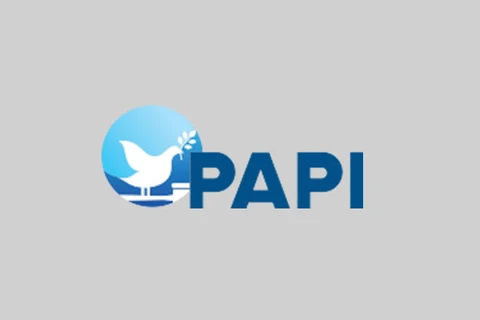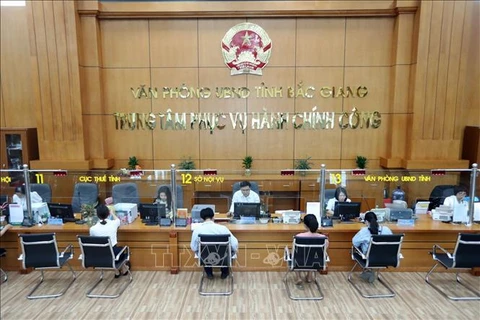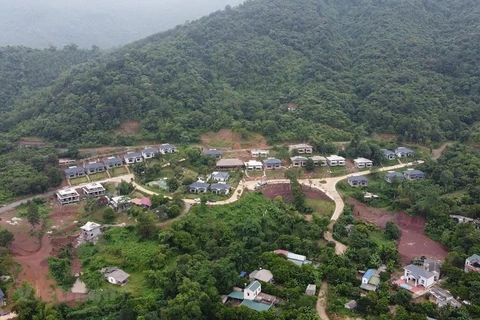Hanoi (VNA) - The capital city of Hanoi scored over 43.9 points out of 80 in the 2022 Provincial Governance and Public Administration Performance Index (PAPI), which was freshly released by the United Nations Development Programme (UNDP) on April 12.
The score helped it be listed among 16 localities with high points of between 43.44 and 47.88.
Among the eight sub-criteria, the capital city scored highest in "public administration procedures" with 7.31 out of 10, followed by "public service delivery" with 7.22 and "control of corruption in the public sector" 6.8.
According to the municipal department for internal affairs, with its point, Hanoi ranked 12th nationwide, down two places compared to 2021.
For Hanoi to improve its ranking in the PAPI index in the time to come, Dang Hoang Giang, a research member of the 2022 PAPI, urged the city to strengthen its performance across all aspects related to administrative performance, from education, transparency in land management, and accessible online public services to environmental management.
Conducted jointly by the Center for Community Support and Development Studies (CECODES), the Vietnam Fatherland Front's Center for Research and Training, Real-Time Analytics, and the United Nations Development Program (UNDP), PAPI is a policy monitoring tool that assesses citizens' experiences and satisfaction with government performance at the national and subnational levels in governance, public administration, and public service delivery.
It is in a unique position to deliver invaluable insights into government performance at all levels two years into its 2021-2026 term and actualise the 2023 legislative agenda. In particular, the index measures eight dimensions: participation at local levels, transparency, vertical accountability, control of corruption, public administrative procedures, public service delivery, environmental governance and e-government.
The 2022 PAPI report provides a source of reliable, evidence-based data for central and local authorities to review their performance in the key areas of governance, public administration, and public service delivery, said UNDP Resident Representative in Vietnam Ramla Khalidi at the April 12 launch.
As reflected through the index, Vietnam’s efforts to overcome the socio-economic impacts of the unprecedented health crisis in 2022 translated into increased economic confidence at household and national levels. In a notable turnaround, 66.1% of the respondents viewed the national economy as “good” in 2022 – a 19.4% leap from a year earlier, while there was a 13.7% drop in citizens assessing conditions as “bad” from 19.8% in 2021 to only 6.1% in 2022. Similarly, at the household level, fewer citizens reported their economic situation was “poor” (11.4 versus 15.3% in 2021).
Despite this progress, some scarring from the health crisis was evident. While 56% of the respondents confirmed their economic conditions were better in 2022 than a year earlier (52%), aside from 2021, this percentage in 2022 was still the lowest since 2012. Similarly, those suggesting that their economic conditions were worse rose to their highest levels since 2012, except for 2021. This underlined that many respondents are still feeling the lingering pain of the economic damage by the pandemic, with ethnic minorities and women most acutely impacted given the higher prevalence of poverty and vulnerable employment among them.
The transition to the post-pandemic era is also reflected in health and health insurance as 2021’s issue of greatest concern plummeting from 23.84 to 6.38% to be overtaken by poverty/hunger (22.13%) – perennially at the top of the list since 2015, aside from pandemic-hit 2021.
Following the initial pilot in 2009 and a larger survey in 2010, the PAPI survey has been implemented nationwide each year since 2011. For the 2022 PAPI Report, 16,117 randomly selected citizens were surveyed. In total, 178,243 Vietnamese citizens nationwide have been directly interviewed for PAPI since 2009./.


























